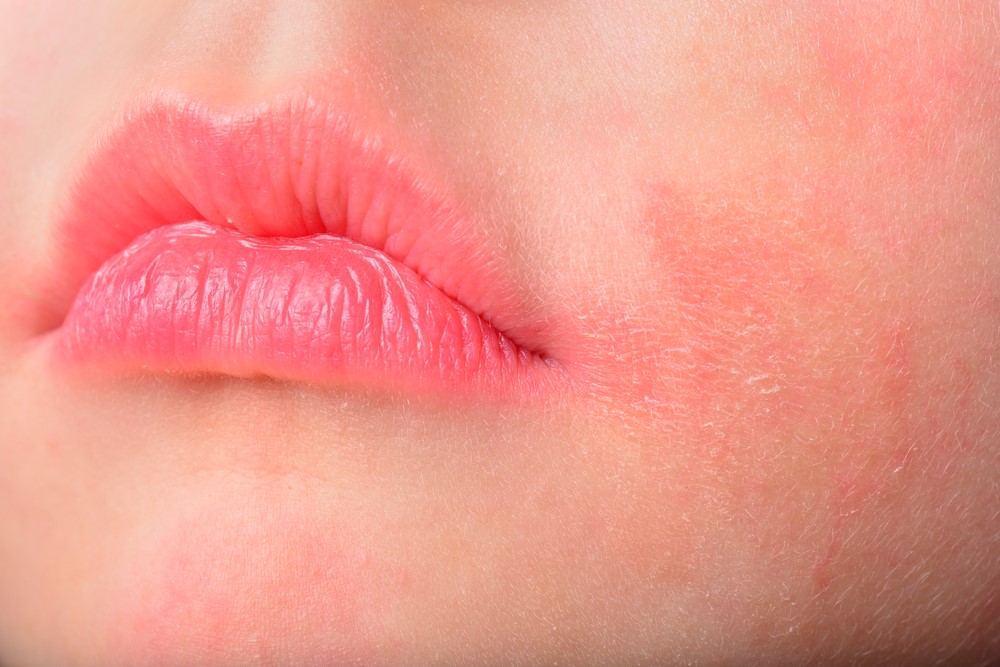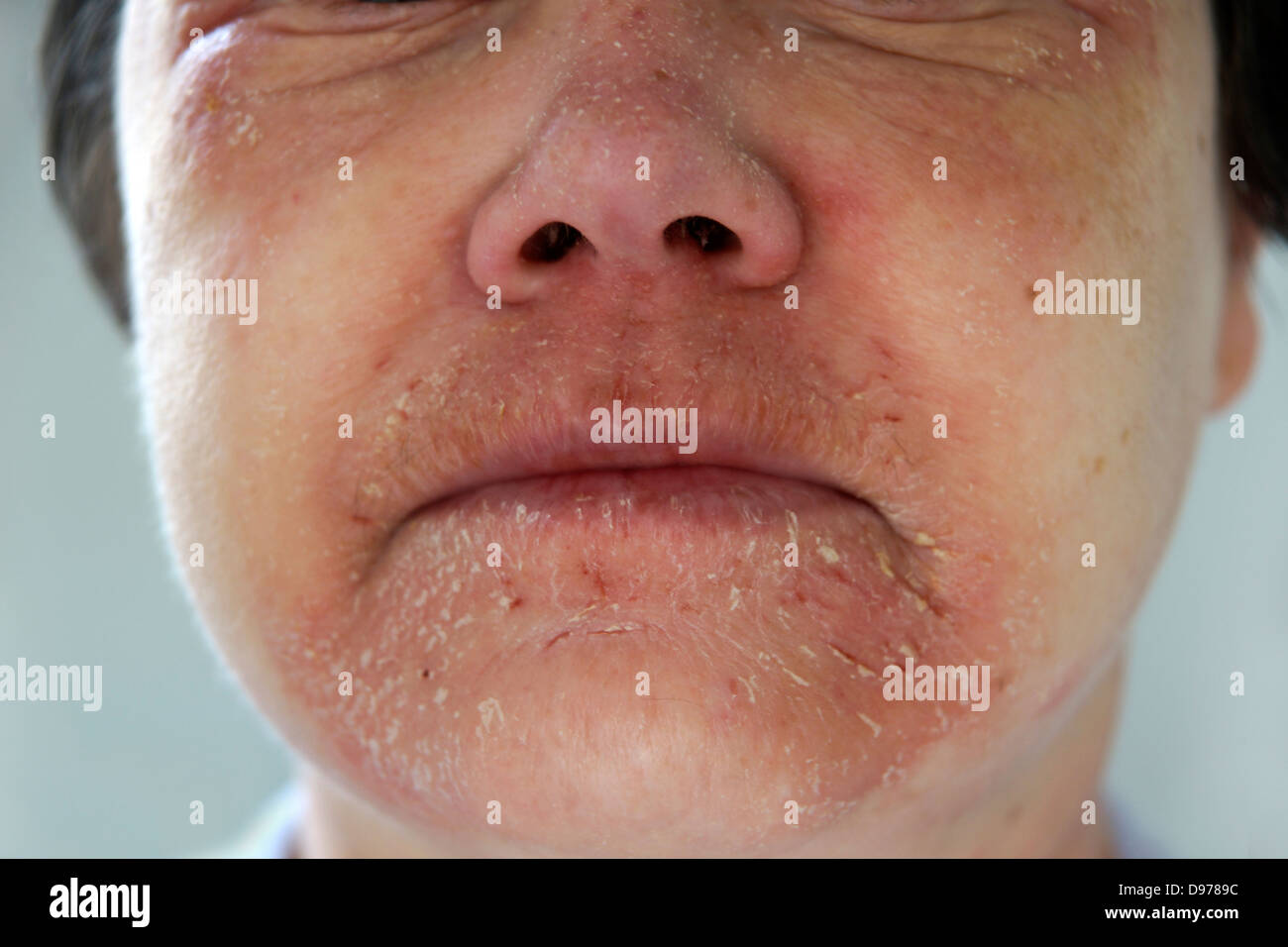What Causes Eczema Patches On Face
Dry patches on face can often be a sign of eczema, a chronic inflammatory skin condition that affects millions of people worldwide. Eczema causes red, itchy, and scaly patches on the skin, and can be triggered by a variety of factors, such as stress, allergens, hormonal changes, and dry weather conditions.
Understanding Eczema
Eczema, also known as atopic dermatitis, is a skin condition that is characterized by inflammation, dryness, and itching of the skin. It occurs when the immune system reacts to irritants or allergens in the environment, causing the skin to become red, itchy, and inflamed.
While eczema can affect people of any age and skin type, it is more common in people with dry skin, and is more prevalent among black people, who are more susceptible to developing the condition due to genetic factors.
Causes of Eczema
There is no exact known cause of eczema, but experts believe that a combination of genetic, environmental, and immune system factors play a role in its development. Some of the most common triggers of eczema include:
- Allergens: Such as pollen, pet dander, or mold
- Irritants: Such as soaps, detergents, or synthetic fabrics
- Dry skin: Especially during the cold and dry winter months
- Hormonal changes: Such as those that occur during puberty or pregnancy
- Stress: Emotional or physical stress can also trigger eczema
Symptoms of Eczema
The symptoms of eczema can vary from person to person, but some of the most common symptoms include:
- Redness: The affected skin can appear red and inflamed
- Itchiness: The skin can be very itchy and dry
- Scaling: The skin may become scaly and flaky
- Bumps Small raised bumps may also appear on the skin
- Oozing and crusting: In severe cases, the skin may ooze and crust over
Diagnosing Eczema
To diagnose eczema, a doctor will usually conduct a physical exam and ask about your medical history and symptoms. They may also perform tests to rule out other skin conditions, such as psoriasis or fungal infections.
If you are diagnosed with eczema, your doctor may prescribe creams or ointments to help calm the inflammation and relieve the itching. They may also recommend lifestyle changes, such as avoiding triggers, using mild soaps and detergents, and keeping your skin moisturized.
Treatment Options for Eczema
There are several treatment options available for eczema, including:
- Topical creams and ointments: These are applied directly to the skin to help reduce inflammation and relieve itching. They may include corticosteroids or immunomodulators, such as tacrolimus or pimecrolimus.
- Oral medications: These may be prescribed for severe cases of eczema, and may include antihistamines, antibiotics, or immunosuppressants.
- Phototherapy: This involves exposing the skin to ultraviolet light, which can help reduce inflammation and itching.
- Dietary changes: Some studies have suggested that dietary changes, such as avoiding certain foods or adding probiotics to your diet, may help reduce eczema symptoms.
- Stress management: Managing stress through techniques such as meditation or yoga can also help reduce the frequency and severity of eczema flare-ups.
Preventing Eczema Flare-Ups
While there is no cure for eczema, certain lifestyle changes can help prevent or reduce the frequency of flare-ups. Some tips for preventing eczema include:
- Avoiding triggers: Try to identify and avoid triggers, such as harsh soaps, detergents, or certain foods.
- Moisturizing: Regular moisturizing can help keep your skin hydrated and prevent dryness.
- Using mild products: Use mild soaps and detergents, and avoid strong fragrances or synthetic fabrics.
- Wearing protective clothing: If your eczema is triggered by allergens, wearing protective clothing such as gloves or masks can help reduce your exposure.
- Managing stress: Activities such as meditation, yoga, or deep breathing can help manage stress and reduce the frequency of flare-ups.
Conclusion
Eczema can be a frustrating and uncomfortable condition, but with the right treatment and lifestyle changes, it can be managed effectively. By understanding the causes and symptoms of eczema, and by taking proactive steps to prevent flare-ups, you can improve your quality of life and reduce the impact of this skin condition.
References
- https://www.aad.org/public/diseases/eczema/
- https://www.medicalnewstoday.com/articles/14417
- https://www.healthline.com/health/eczema

Causes of Dry Patches on Face
Dry patches on face are a common symptom of eczema, but they can also be caused by other factors. Some common causes of dry patches on face include:
- Environmental factors: Exposure to harsh weather conditions, such as cold or dry weather, can cause the skin to become dry and flaky.
- Hot showers: Taking hot showers or baths can strip the skin of its natural oils, leading to dryness and flakiness.
- Use of harsh chemicals: Using harsh soaps or beauty products can irritate the skin, leading to dryness and flakiness.
- Dehydration: Not drinking enough water can lead to dehydration, which can cause the skin to become dry and flaky.
- Allergic reactions: Some people may experience dry patches on face as a result of an allergic reaction to certain foods, medications, or beauty products.
Treatment Options for Dry Patches on Face
There are several treatment options available for dry patches on face, depending on the underlying cause. Some options include:
- Moisturizing: Regular moisturizing can help keep the skin hydrated and prevent dryness. Look for products that contain emollients, such as shea butter or coconut oil.
- Exfoliating: Exfoliating with a scrub or gentle exfoliating product can help remove dead skin cells and promote skin renewal.
- Hydration: Drink plenty of water to help keep your skin hydrated from the inside out.
- Avoiding harsh chemicals: Use gentle, natural products that are free of harsh chemicals and artificial fragrances.
- Medical treatment: If your dry patches on face are caused by a medical condition, such as eczema or psoriasis, your doctor may prescribe medications or topical creams to help control your symptoms.

The Impact of Eczema on Mental Health
Eczema can be more than just a physical condition. It can also take a toll on your mental health, leading to feelings of anxiety, depression, and social isolation.
Studies have shown that people with eczema are more likely to experience poor mental health outcomes, such as increased anxiety and depression, compared to people without eczema. This may be due to a variety of factors, such as the discomfort and embarrassment of dealing with visible skin rashes, the impact of chronic itching on the ability to sleep, and the frustration of coping with a chronic condition that does not have a cure.
If you are struggling with the mental health impact of eczema, it is important to seek support from your healthcare provider or a mental health professional. They can help you develop strategies to manage your symptoms and improve your quality of life.